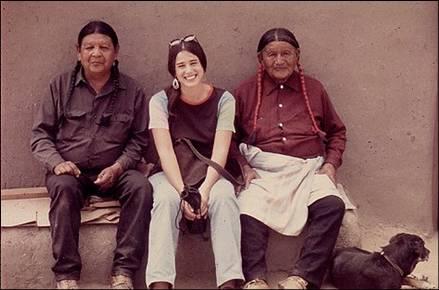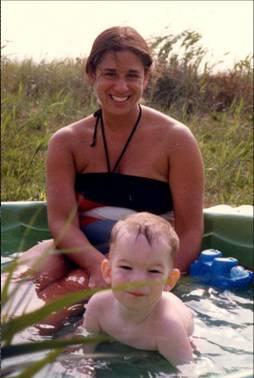Profile

Sue Rosenberg Zalk
Birth:
1945
Death:
2001
Training Location(s):
PhD, Ferkauf Graduate school of Yeshiva University (1972)
MA, Ferkauf Graduate School of Yeshiva University (1970)
BA, New York University (1967)
Primary Affiliation(s):
Bank Street College of Education
Hunter College (1974-1979)
City University of New York (1979-2001)
Career Focus:
Developmental psychology; racial attitudes in children; gender; violence against women; sexual harassment; multiple-role stress.
Biography
Sue Rosenberg was born in New York City in 1945. She discovered early on in her undergraduate career that she enjoyed psychology, and majored in it while studying at New York University. Rosenberg graduated with her BA in 1967 and quickly went on to earn her master’s degree in 1970, focusing on school psychology. Next, Rosenberg pursued her doctorate in educational psychology at the Ferkauf Graduate School of Yeshiva University. It was also during her graduate career that Rosenberg married Richard Zalk. The couple remained in New York while she undertook postgraduate studies at the New York Center for Psychoanalytic Training.
Zalk spent time as an elementary school teacher which likely influenced her thinking in educational psychology. Along with one of her early mentors, Phyllis Katz, Zalk developed the Katz-Zalk Projective Prejudice Test for children. The test consists of a series of slides shown to children between the ages of approximately seven and ten. The child participants are asked to identify which person in the picture initiated or received either positive or negative actions. Each slide contained pictures of children of various races. It was designed to measure racial prejudice in school-aged children and was tested among ethnically diverse children in both urban and suburban areas.
While developmental psychology was a true passion of Zalk’s, she also worked extensively on issues of gender and sex roles. Her work spanned the field and included studies in sexual harassment and violence against women. She bridged her interest in development and gender by studying gender attitudes in children. Zalk also researched multiple-role stress, substance abuse, and re-entry into the education system in midlife.
Many of Zalk’s books were handbooks and manuals within the profession, including Convention Survival Techniques: Getting the Most out of Your Professional Association’s Meetings (1997), and her contribution to Academic and Workplace Sexual Harassment: A Resource Manual (1991). She is also known for her book Expectant Fathers, which explored the father’s role in, and feelings surrounding pregnancy. Zalk also made significant contributions to gender publications during her time as editor of the journal Sex Roles and as the book series editor for Division 35.
Professional involvement was important to Zalk. She served on many boards and committees in various capacities. She was very involved in the American Psychological Association, chairing boards on award committees, mentoring, the urban initiative, and recruitment. Zalk played key roles in APA’s Division 35 (Society for the Psychology of Women) and Division 9 (Society for the Psychological Study of Social Issues) and served as liaison to Division 51 (Society for the Psychological Study of Men and Masculinity). Just before her death, she was set to chair APA’s Urban Initiatives Committee.
Not only was Zalk an inspiration to her colleagues through her professional contributions and publications, she also maintained a close connection to her students. While working at City University of New York (CUNY) in 1984, Zalk became the director of the Center for the Study of Women and Society at The Graduate Center. This position gave Zalk the opportunity to spend even more time on mentorship. Through her teaching and advising, Zalk touched the lives of numerous students. She was an example of feminist leadership in academia. It was a shock to her family, friends, colleagues and students when in July of 2001, while visiting family in Florida, Zalk died suddenly from a brain aneurism. Her influential career was cut short, though her spirit goes on in the work of those she taught and with whom she collaborated. Zalk is now commemorated by the Rosenberg Zalk Award for Distinguished Service to the Society for the Psychology of Women which recognizes an individual who has served the society “in a variety of significant ways over a substantial period of time.”
by Meghan George (2012)
To cite this article, see Credits
Selected Works
By Sue Rosenberg Zalk
Katz, P. A., Sohn, M., & Zalk, S. R. (1975). Perceptual concommitants of racial attitudes in urban grade-school children. Developmental Psychology, 11, 135-144.
Katz, P. A., & Zalk, S. R. (1974). Doll preferences: An index of racial attitudes? Journal of Educational Psychology, 66, 663-668.
Katz, P. A., & Zalk, S. R. (1978). Modification of children's racial attitudes. Developmental Psychology, 14, 447-461.
Katz, P. A., Zigler, E., & Zalk, S. R. (1975). Children's self-image disparity: The effects of age, maladjustment, and action-thought orientation. Developmental Psychology, 11, 546-550.
Zalk, S. R. (1996). Men in the academy: A psychological profile of harassers. In M. A. Paludi (Ed.), Sexual harassment on college campuses: Abusing the ivory power. (pp. 81-113). Albany, NY: State University of New York Press.
Zalk, S. R., & Katz, P. A. (1978). Gender attitudes in children. Sex Roles, 4, 349-357.
About Sue Rosenberg Zalk
Katz, P. A. (2002). Sue Rosenberg Zalk (1945-2001). American Psychologist, 57, 128-128.
Photo Gallery





Sue Rosenberg Zalk
Birth:
1945
Death:
2001
Training Location(s):
PhD, Ferkauf Graduate school of Yeshiva University (1972)
MA, Ferkauf Graduate School of Yeshiva University (1970)
BA, New York University (1967)
Primary Affiliation(s):
Bank Street College of Education
Hunter College (1974-1979)
City University of New York (1979-2001)
Career Focus:
Developmental psychology; racial attitudes in children; gender; violence against women; sexual harassment; multiple-role stress.
Biography
Sue Rosenberg was born in New York City in 1945. She discovered early on in her undergraduate career that she enjoyed psychology, and majored in it while studying at New York University. Rosenberg graduated with her BA in 1967 and quickly went on to earn her master’s degree in 1970, focusing on school psychology. Next, Rosenberg pursued her doctorate in educational psychology at the Ferkauf Graduate School of Yeshiva University. It was also during her graduate career that Rosenberg married Richard Zalk. The couple remained in New York while she undertook postgraduate studies at the New York Center for Psychoanalytic Training.
Zalk spent time as an elementary school teacher which likely influenced her thinking in educational psychology. Along with one of her early mentors, Phyllis Katz, Zalk developed the Katz-Zalk Projective Prejudice Test for children. The test consists of a series of slides shown to children between the ages of approximately seven and ten. The child participants are asked to identify which person in the picture initiated or received either positive or negative actions. Each slide contained pictures of children of various races. It was designed to measure racial prejudice in school-aged children and was tested among ethnically diverse children in both urban and suburban areas.
While developmental psychology was a true passion of Zalk’s, she also worked extensively on issues of gender and sex roles. Her work spanned the field and included studies in sexual harassment and violence against women. She bridged her interest in development and gender by studying gender attitudes in children. Zalk also researched multiple-role stress, substance abuse, and re-entry into the education system in midlife.
Many of Zalk’s books were handbooks and manuals within the profession, including Convention Survival Techniques: Getting the Most out of Your Professional Association’s Meetings (1997), and her contribution to Academic and Workplace Sexual Harassment: A Resource Manual (1991). She is also known for her book Expectant Fathers, which explored the father’s role in, and feelings surrounding pregnancy. Zalk also made significant contributions to gender publications during her time as editor of the journal Sex Roles and as the book series editor for Division 35.
Professional involvement was important to Zalk. She served on many boards and committees in various capacities. She was very involved in the American Psychological Association, chairing boards on award committees, mentoring, the urban initiative, and recruitment. Zalk played key roles in APA’s Division 35 (Society for the Psychology of Women) and Division 9 (Society for the Psychological Study of Social Issues) and served as liaison to Division 51 (Society for the Psychological Study of Men and Masculinity). Just before her death, she was set to chair APA’s Urban Initiatives Committee.
Not only was Zalk an inspiration to her colleagues through her professional contributions and publications, she also maintained a close connection to her students. While working at City University of New York (CUNY) in 1984, Zalk became the director of the Center for the Study of Women and Society at The Graduate Center. This position gave Zalk the opportunity to spend even more time on mentorship. Through her teaching and advising, Zalk touched the lives of numerous students. She was an example of feminist leadership in academia. It was a shock to her family, friends, colleagues and students when in July of 2001, while visiting family in Florida, Zalk died suddenly from a brain aneurism. Her influential career was cut short, though her spirit goes on in the work of those she taught and with whom she collaborated. Zalk is now commemorated by the Rosenberg Zalk Award for Distinguished Service to the Society for the Psychology of Women which recognizes an individual who has served the society “in a variety of significant ways over a substantial period of time.”
by Meghan George (2012)
To cite this article, see Credits
Selected Works
By Sue Rosenberg Zalk
Katz, P. A., Sohn, M., & Zalk, S. R. (1975). Perceptual concommitants of racial attitudes in urban grade-school children. Developmental Psychology, 11, 135-144.
Katz, P. A., & Zalk, S. R. (1974). Doll preferences: An index of racial attitudes? Journal of Educational Psychology, 66, 663-668.
Katz, P. A., & Zalk, S. R. (1978). Modification of children's racial attitudes. Developmental Psychology, 14, 447-461.
Katz, P. A., Zigler, E., & Zalk, S. R. (1975). Children's self-image disparity: The effects of age, maladjustment, and action-thought orientation. Developmental Psychology, 11, 546-550.
Zalk, S. R. (1996). Men in the academy: A psychological profile of harassers. In M. A. Paludi (Ed.), Sexual harassment on college campuses: Abusing the ivory power. (pp. 81-113). Albany, NY: State University of New York Press.
Zalk, S. R., & Katz, P. A. (1978). Gender attitudes in children. Sex Roles, 4, 349-357.
About Sue Rosenberg Zalk
Katz, P. A. (2002). Sue Rosenberg Zalk (1945-2001). American Psychologist, 57, 128-128.




